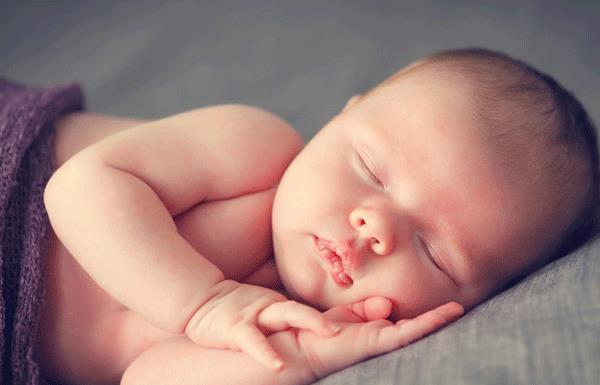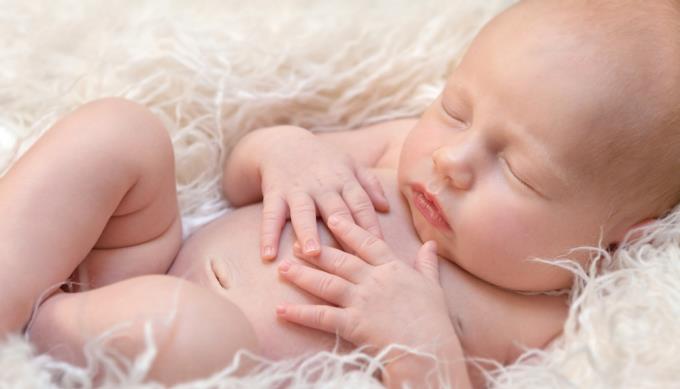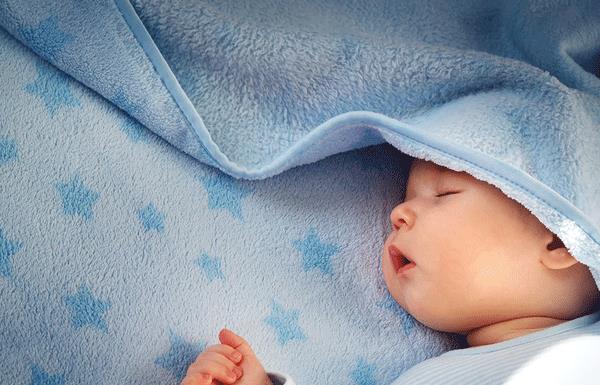Infant sleep is crucial for growth and development. In the first few weeks, babies sleep up to 16-17 hours a day, in short 2-4 hour intervals. Both insufficient and excessive sleep can be concerning. This article provides the latest information on infant sleep patterns, benefits, and tips for establishing healthy sleep habits.
Table of Contents
How Important is an Infant's Sleep?
Sleep is essential for a baby's growth and brain development. Babies wake up primarily for feeding or diaper changes, spending the rest of their time sleeping. This is partly due to their adaptation to external light and their in-womb habits.

Benefits of sleep for babies after birth:
- Promotes growth
- Enhances brain development
- Supports central nervous system development
- Improves mental comfort
- Boosts immune system
- Encourages active interaction with surroundings
Is it Good for Babies to Sleep a Lot?
Infants' sleep cycles are shorter than adults, with more time spent in REM sleep, crucial for brain development. By 6-8 weeks, babies start sleeping longer at night, though they still wake for feedings. By 4-6 months, most babies sleep 8-12 hours through the night.
Getting plenty of sleep at the recommended time is good for your baby's development.
Does a Little Baby Sleep Have Any Effect?

Insufficient sleep in the first 0-3 months can significantly impact brain development and height. Deep sleep between 10 PM-2 AM is crucial for height hormone development. Creating a comfortable sleep environment is essential for quality sleep.
 Children do not sleep well: deal quickly lest harm!
Children do not sleep well: deal quickly lest harm!
Sleep is closely linked to child development, especially in the first three years. Lack of sleep can lead to irritability, fatigue, and poor learning abilities.
Table of Sleep Times of Scientific Infants
| Age |
Night |
Day |
Total Time |
| 0-4 months |
12 hours |
7-9 hours |
15-21 hours |
| 4-12 months |
12 hours |
4-5 hours |
13-15 hours |
| 1 year |
11 hours |
2-3 hours |
14 hours |
| 2 years |
10-12 hours |
1-3 hours |
13 hours |
| 3 years |
9-12 hours |
1-3 hours |
12-13 hours |
| 4 years |
9-12 hours |
0-2.5 hours |
11-12 hours |
| 5 years |
8-11 hours |
0-2.5 hours |
10-11 hours |
| 6 years |
10-11 hours |
Not needed |
10-11 hours |
| 7 years |
10-11 hours |
Not needed |
10-11 hours |
| 8 years |
10-11 hours |
Not needed |
10-11 hours |
Note: Babies with longer daytime sleep will sleep less at night and vice versa.
Sleep Time of Infants from 0 to 6 Months
Sleep patterns vary by age, feeding times, and family habits. Here’s a breakdown for 0-6 months:
- 0-1 months: 15-16 hours/day
- 1-3 months: 15.5-17 hours/day (8.5-10 hours at night, 6-7 hours during the day)
- 3-6 months: 15-16 hours/day

How to Establish Good Sleep Habits for Babies?
Here are some tips to help your baby develop healthy sleep habits:
- Learn the signs of tiredness: Babies can't stay awake for more than 2 hours in the first 6-8 weeks. Look for signs like eye rubbing or irritability.
- Teach day-night difference: Keep the house bright during the day and minimize interaction at night.
- Establish a bedtime routine: Include activities like changing into pajamas and singing a lullaby.
- Encourage self-soothing: Allow your baby to fall asleep on their own from 6-8 weeks.


















Emma Sleep Mom -
wow, this chart is a lifesaver! #infantsleep my little one is exactly matching these sleep patterns. so helpful to know what's normal 👶💤
Mommy Lisa -
omg this is exactly what i needed! tracking baby sleep can be so confusing. thank u for making it simple #newmomlife
Sleepy Sam -
does anyone else's baby NOT follow these guidelines? asking for a friend 😅
Tired Sarah 2024 -
lol sleep? what's that? 😂 my baby seems to have missed this memo about recommended sleep times
Tired Tom -
is this real? my baby seems to have a completely different agenda 😴
Emily Nurse -
As a pediatric nurse, I always recommend parents use resources like this. Understanding normal sleep ranges helps reduce unnecessary anxiety.
Baby Whisperer Kate -
Fantastic visual guide! Remember parents, these are guidelines. Every baby is unique and will develop their own sleep rhythm. Patience and consistency are key in establishing healthy sleep habits
Pediatric Pete -
Excellent resource for parents and caregivers. The gradual reduction in daytime sleep and increase in nighttime sleep is scientifically accurate. Important to remember every child is unique.
Dad Jake -
Really appreciate this detailed breakdown. As a first-time parent, understanding sleep cycles has been challenging. This table gives me peace of mind about my 3-month-old's sleep schedule
Daddy Chris -
lmao sleep charts... more like wishful thinking 🤣 my kid has other plans
Dr. Mike RN -
Comprehensive overview of infant sleep patterns. Professionals and parents will find this incredibly useful. Recommend sharing with new parent support groups
Rachel Wellness -
Important reminder that consistent sleep routines are crucial for infant development. This chart provides a great baseline for understanding healthy sleep expectations